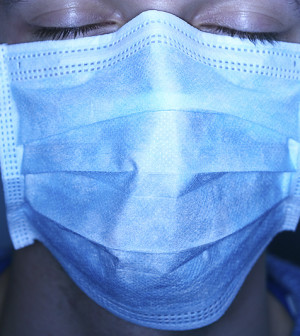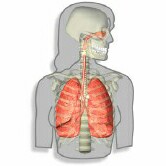- Could Artificial Sweeteners Be Aging the Brain Faster?
- Techniques for Soothing Your Nervous System
- Does the Water in Your House Smell Funny? Here’s Why
- Can a Daily Dose of Apple Cider Vinegar Actually Aid Weight Loss?
- 6 Health Beverages That Can Actually Spike Your Blood Sugar
- Treatment Options for Social Anxiety Disorder
- Understanding the Connection Between Anxiety and Depression
- How Daily Prunes Can Influence Cholesterol and Inflammation
- When to Take B12 for Better Absorption and Energy
- Epsom Salts: Health Benefits and Uses
Soy Supplements Won’t Ease Asthma, Study Finds


(HealthDay News) — Despite hints from prior research that soy supplements might help asthma patients breathe easier, a major new study finds the nutrient has no beneficial effect on lung function.
“This study highlights why it is so important to perform well-designed, placebo-controlled studies when associations are reported between specific nutrients and disease outcomes,” study lead author Dr. Lewis Smith, professor of medicine at Northwestern University Feinberg School of Medicine, said in a university news release.
The study, published in the May 26 issue of the Journal of the American Medical Association, also highlights the need to focus on overall health — including diet and lifestyle — to manage asthma, rather than on specific approaches such as consuming more soy, he said.
“You are what you eat, but that’s a whole constellation of foods, not just a single food or a single component of a food,” Smith said. “Instead of focusing on supplements, we should be taking a more holistic approach.”
His team note that prior research had suggested that soy might shield against asthma, including a study that found low rates of asthma in countries with high rates of dietary soy intake, such as China and Japan.
To test the theory, Smith’s team studied the effects of soy in 386 people age 12 and older with poorly controlled asthma. All of them were taking medications to treat their asthma, but none were consuming soy regularly before enrolling in the study.
Half of the participants took a soy isoflavone supplement twice daily for six months, while the other half took a placebo. Soy isoflavones plant-based compounds found in foods such as tofu have been previously found to help ease hot flashes in menopause, the authors noted.
However, “we found that the supplement, though able to increase blood levels of the key soy isoflavone genistein, did not improve lung function, symptoms or measures of inflammation in these individuals,” Smith said.
Two experts in asthma care said the study gives patients valuable new information.
“I think studies like this are important,” said Dr. Beth Corn, director of the Allergy and Asthma Clinic at The Mount Sinai Hospital in New York City. “Many patients want a natural (alternative) solution for their conditions, rather than having to take a medication, because medications come with potential side effects, both short term and long term.”
However, “the public needs to be educated that disease is a multifaceted process and that there are many components that work in tandem in the healing process,” Corn added. “It is rare that a supplement, on its own, is the answer.”
Another expert agreed.
“Not only does soy not improve asthma symptoms, this article points out the nature of how many factors in a [preliminary] study can lead to fallacious conclusions,” said Dr. Len Horovitz, a pulmonary specialist at Lenox Hill Hospital in New York City.
More information
The U.S. National Heart, Lung, and Blood Institute has more about asthma treatment and control.
Source: HealthDay
Copyright © 2026 HealthDay. All rights reserved.










